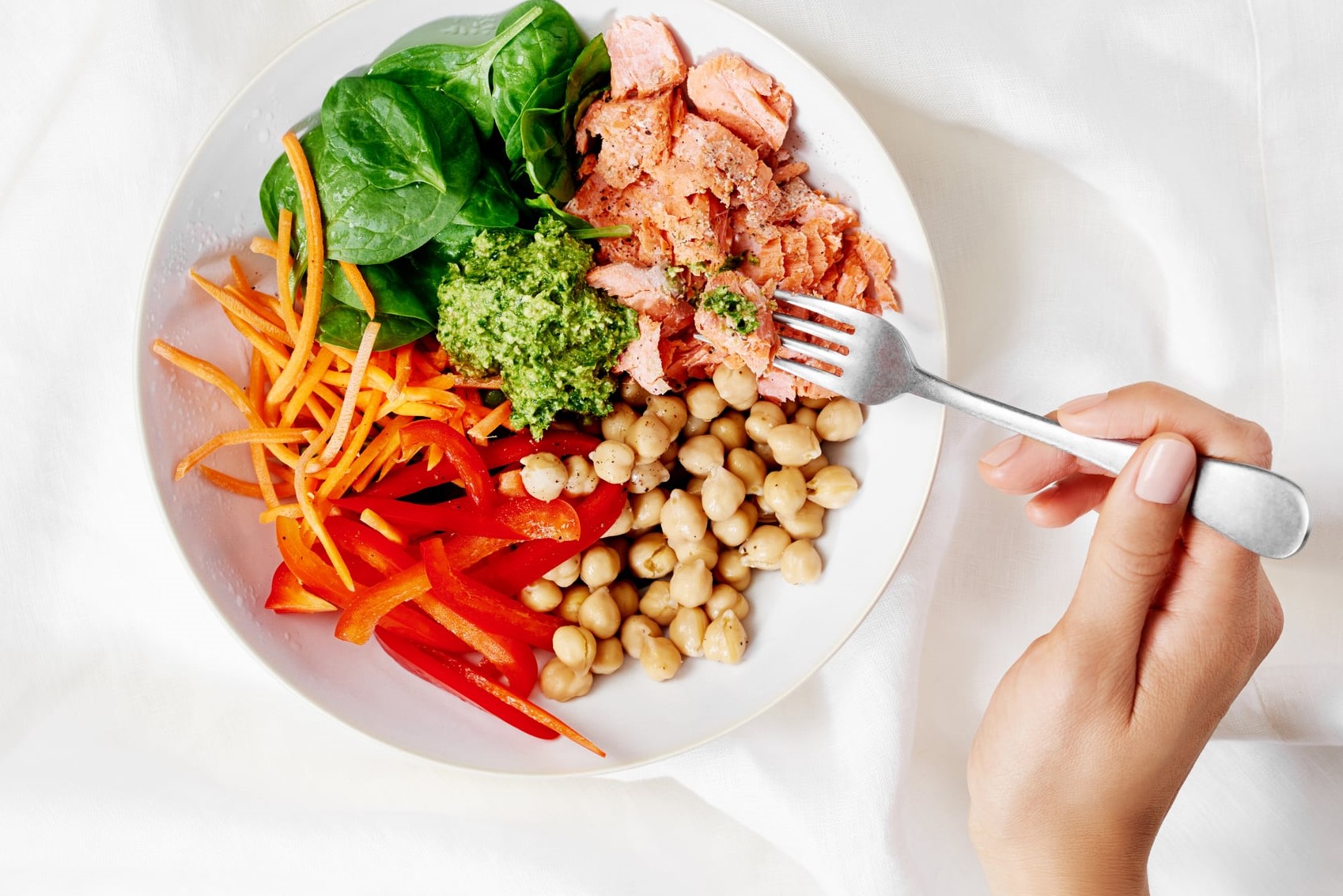By Katherine Kimber, Registered Dietitian,
If you check out on Google, you are going to find lots of information on what you should/shouldn’t eat after having a baby, and in particular, how to lose the pregnancy weight. From taking, green juices, powders, spritzers, and supplements to messages around burning calories, reducing “belly fat” and cutting the craving.

Whilst many of these products are inaccessible, expensive, unnecessary, messages around needing to “fix our bodies” post pregnancy can cause pre-occupation and fixation on your weight and your body. It’s also not evidence-based, as data doesn’t support the idea that breastfeeding actually reduces weight in the long term.
Our bodies are constantly working to defend our natural set point weight. Dieting and restriction can not only undermine our own ability to self-regulate our needs through intuitive eating, but leave us feeling even more exhausted and depleted. This can decrease milk supply, increase risk of infection and increase the length of time for healing and repair.
Dietcian Answer “There is no such thing as a Perfect diet.” Just Follow these Tips
Take the Pressure off.
For many, the societal pressure to lose weight post pregnancy is the last thing needed when trying to figure out what looking after a baby human and your own self-care looks like.

And the good news is, you do not need to do anything special to your diet post pregnancy to stay nourished! Here are some gentle nutrition tips (not rules) things that might help:
Honor your hunger
Allowing yourself to become excessively hungry can trigger a natural intense desire to eat, often leading to unintended binge eating. Not eating enough in the daytime could be a reason for experiencing night-time craving.
Hunger can show up not just in the stomach, but in,
- your mood (tired, hangry, low mood)
- energy levels
- head (concentration, headaches, dizziness, thinking about food), and
- overall body (feeling shaky).
It can be harder to check in with your natural hunger signals when you’re sleep deprived, and your hormones are trying to recalibrate. It’s normal for hunger craving to show up every 3-4 hours, so if you’re in doubt or struggling, try to aim for regular meals and snacks at these sorts of intervals.
Hydrate
Drink to thirst, have fluids handy, especially if you’re breastfeeding, as it’s important to ensure you both keep hydrated.
Protein
Try to consume some protein with your meals. We tend to get enough in our diet generally, so no need to start drinking protein shakes. Simply having just some, through cheese, yoghurt, meat, nuts, hummus, baked beans etc., will do! This will help with healing and recovery.
Iron, Calcium, Vitamin D
These are 3 nutrients that can be depleted in pregnancy/post pregnancy, so it’s important to speak to a healthcare professional about your specific needs.
Most importantly, simply making sure you’re eating enough, is enough! If that’s a bowl of cereal, freezer food, a slice of toast in one hand while you’re feeding the baby, you’re doing okay! If you’re relying on more convenience foods, that’s okay too! There is no such thing as a perfect diet.
Go easy on your body, and remember it’s physically impossible for a body to “go back” to what it was like before having a baby…your body has housed a new human, and it’s an incredible thing.
Disclaimer
The Content is not intended to be a substitute for professional medical advice, diagnosis, or treatment. Always seek the advice of your physician or other qualified health provider with any questions you may have regarding a medical condition.